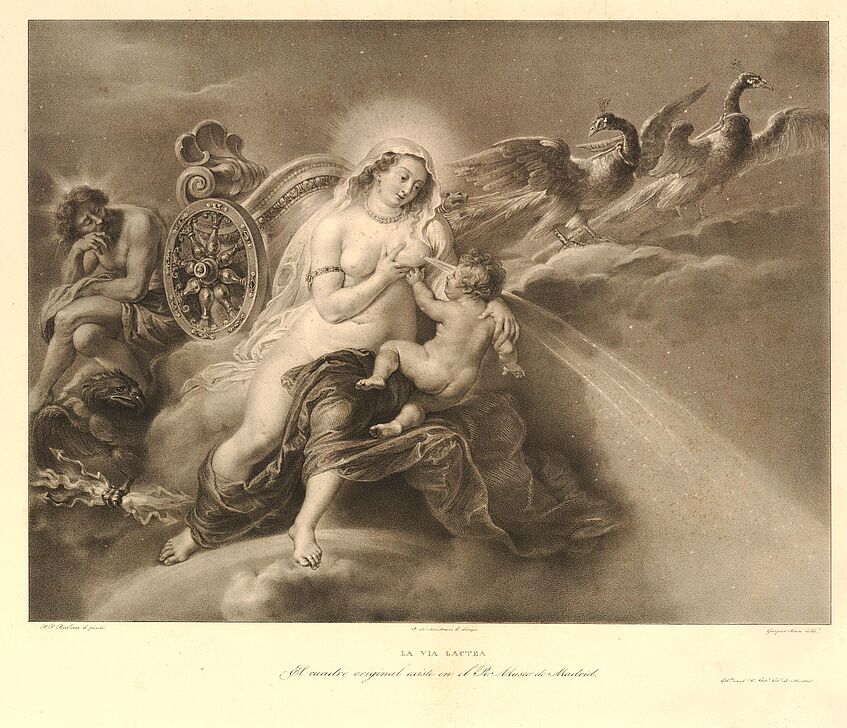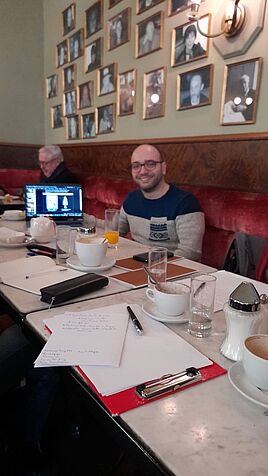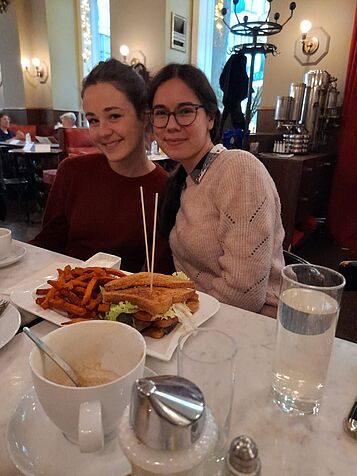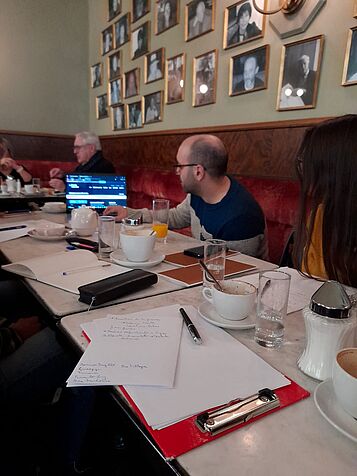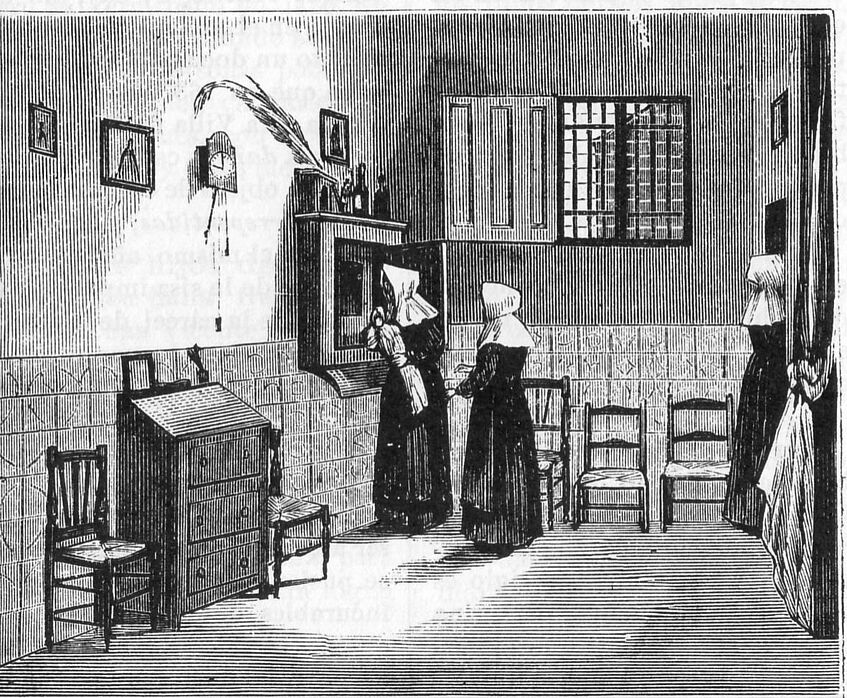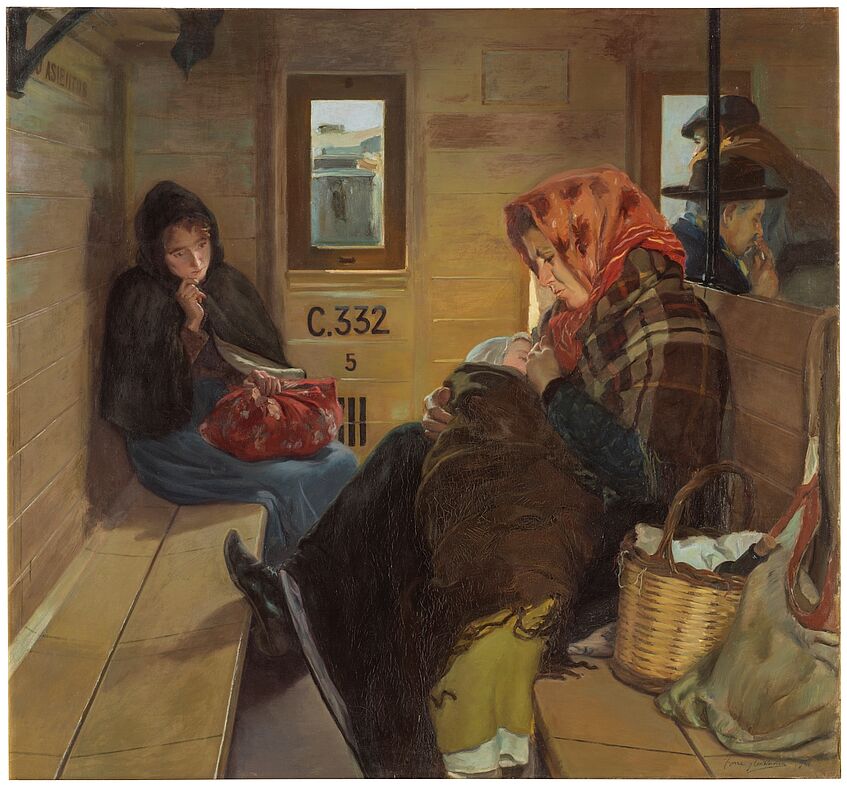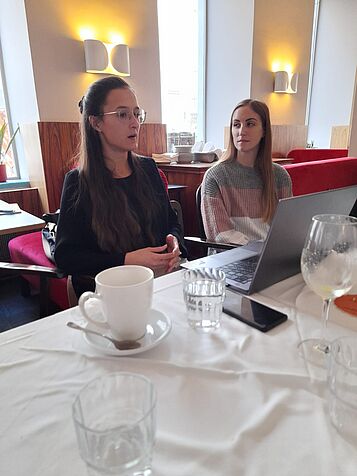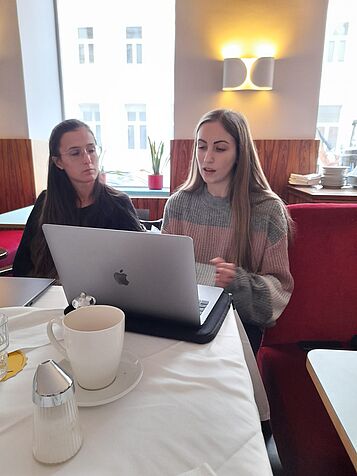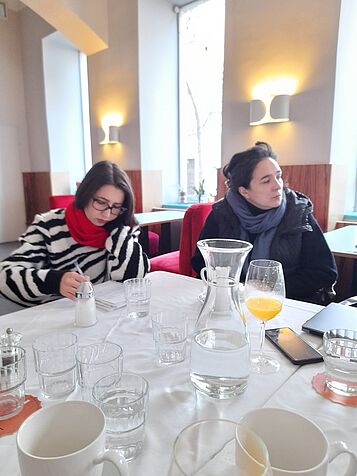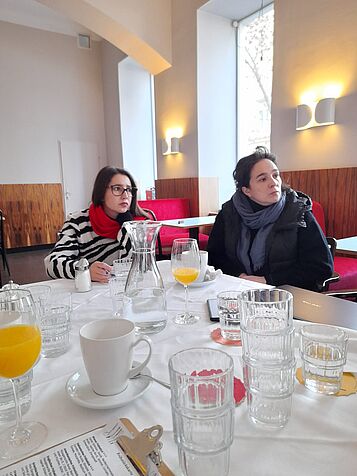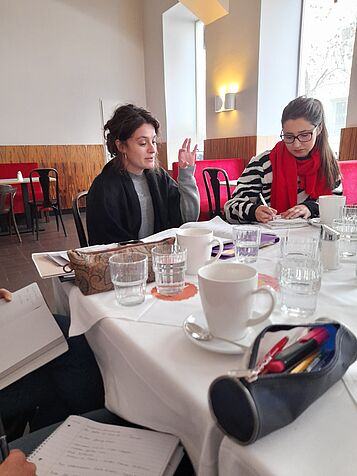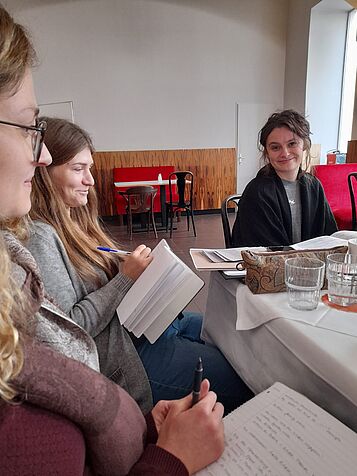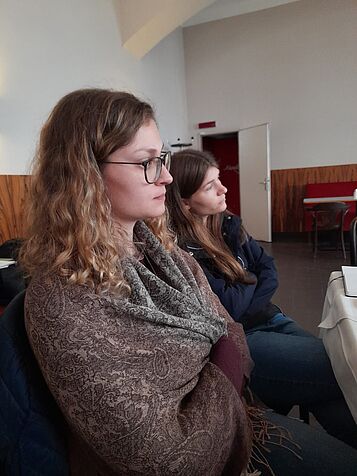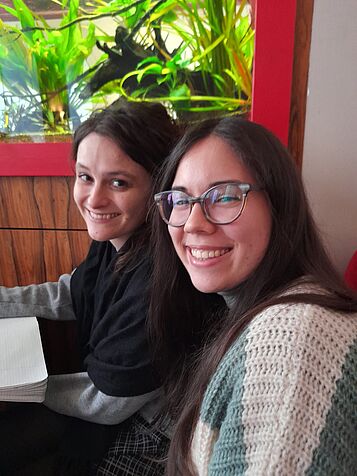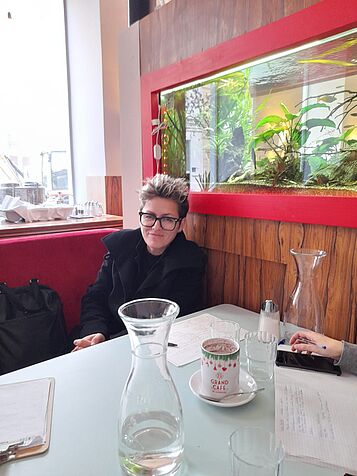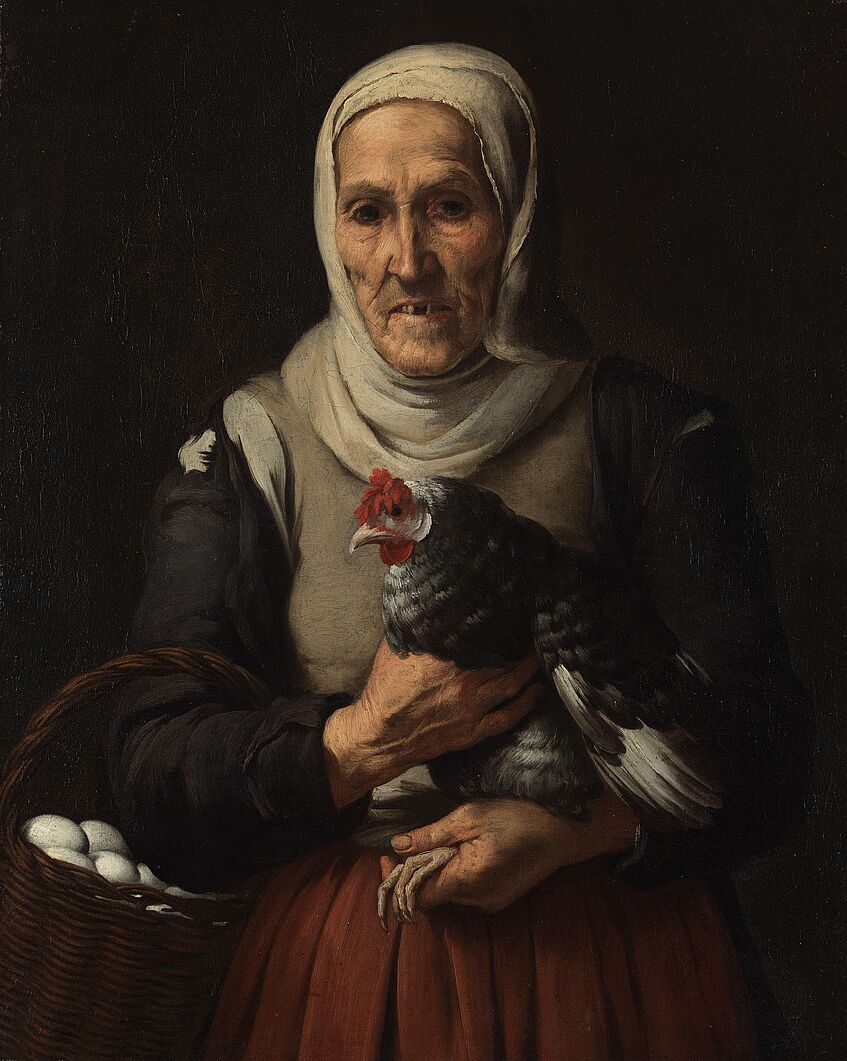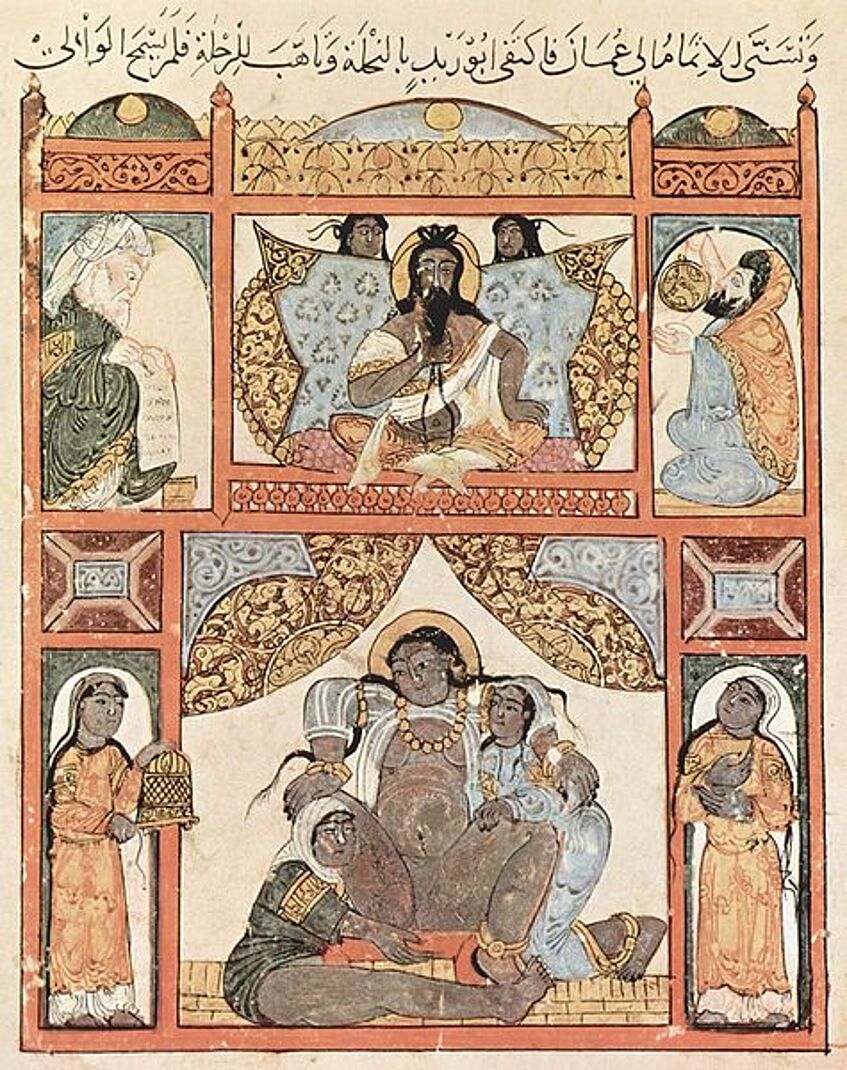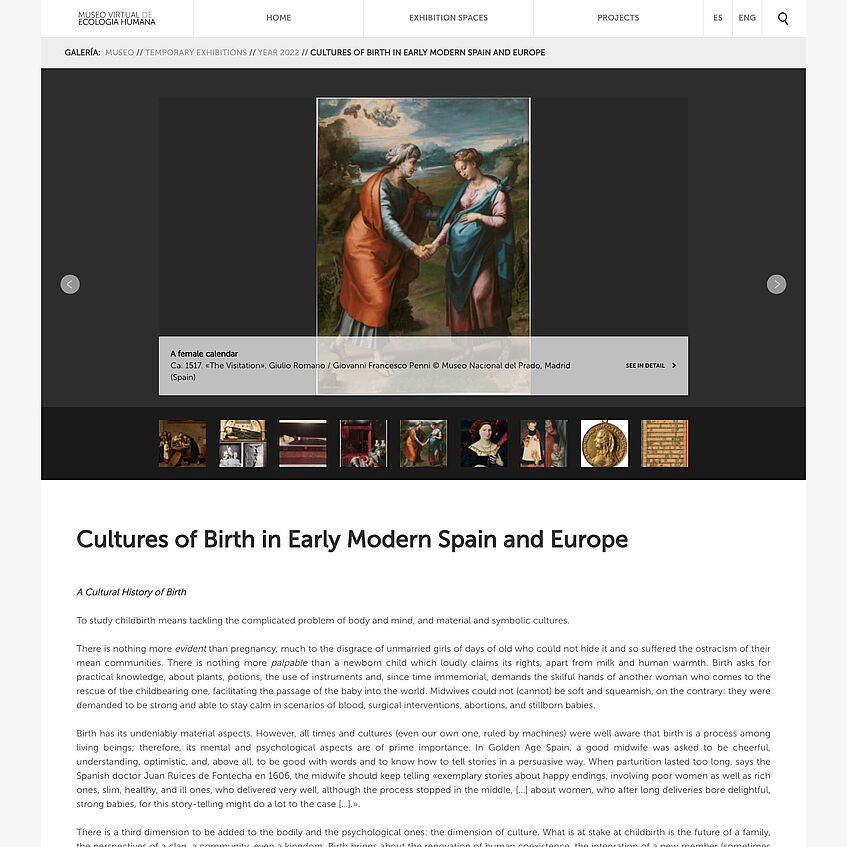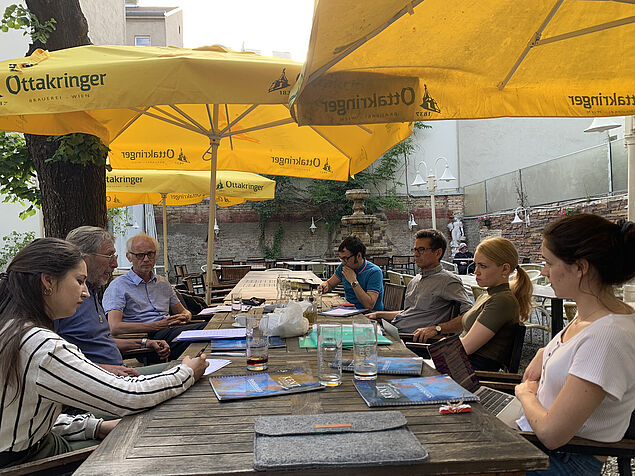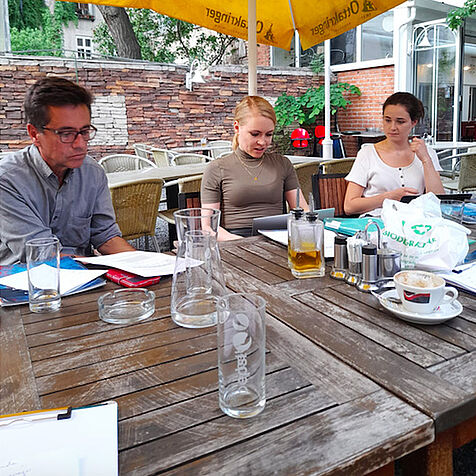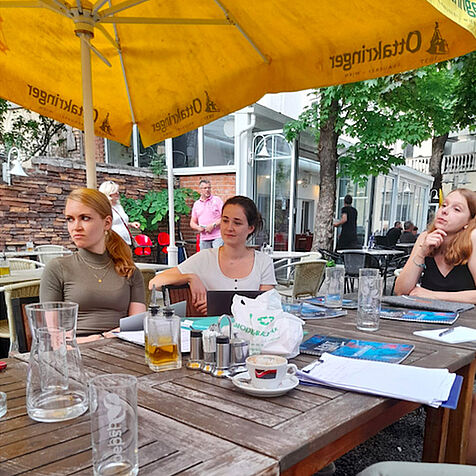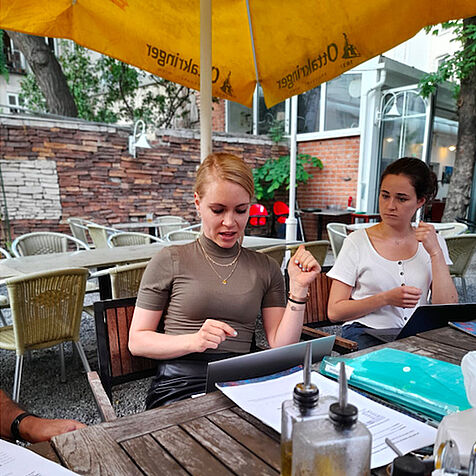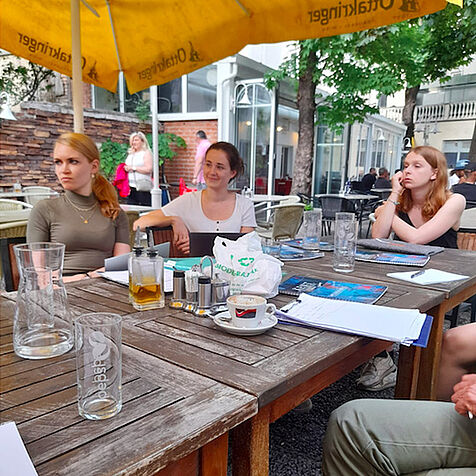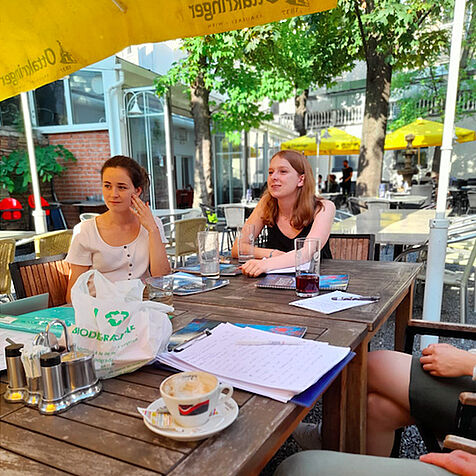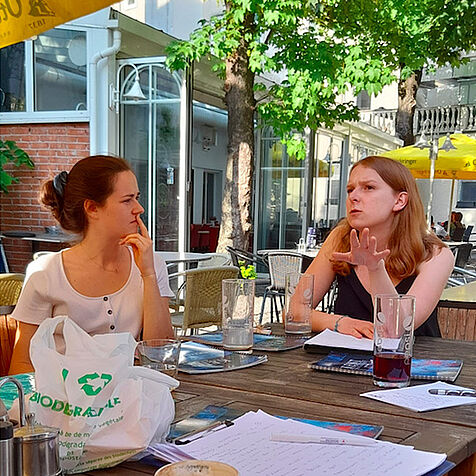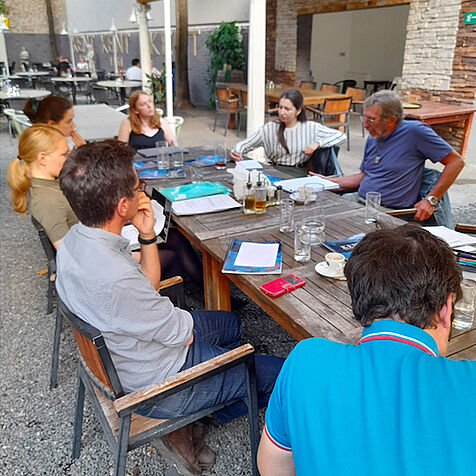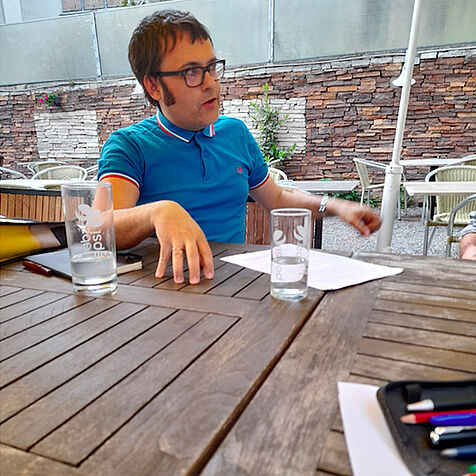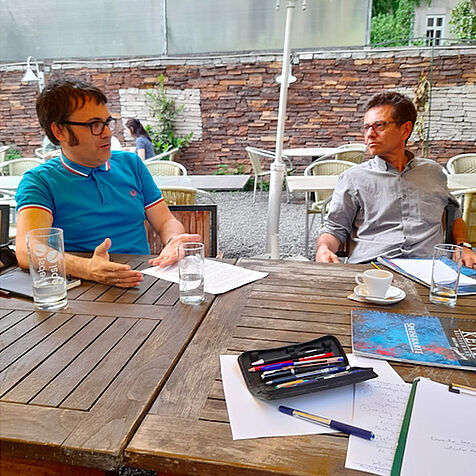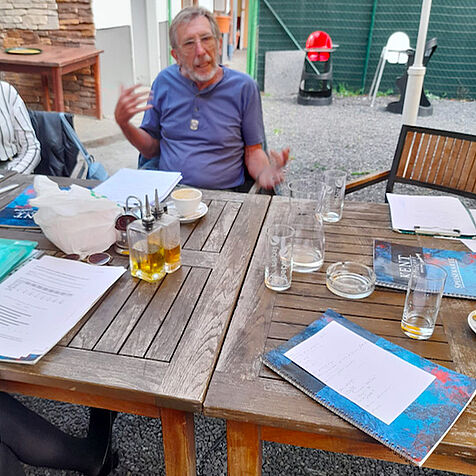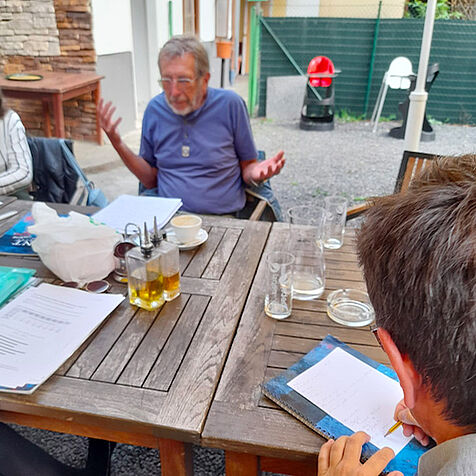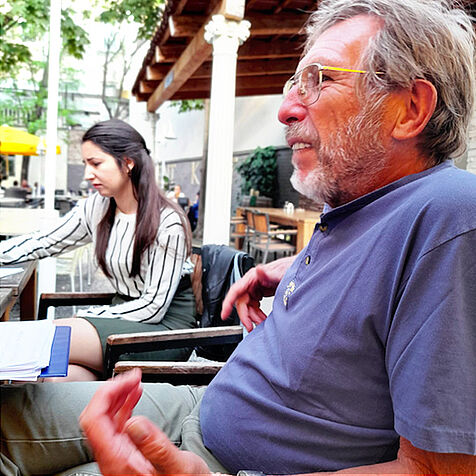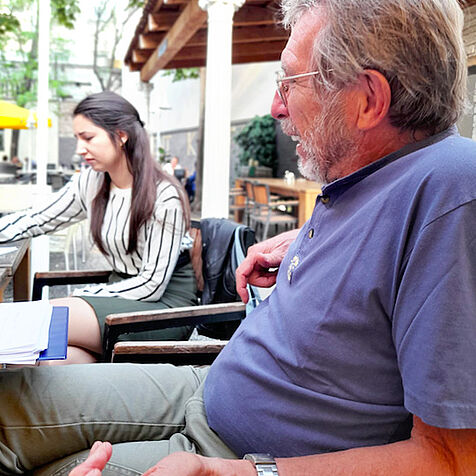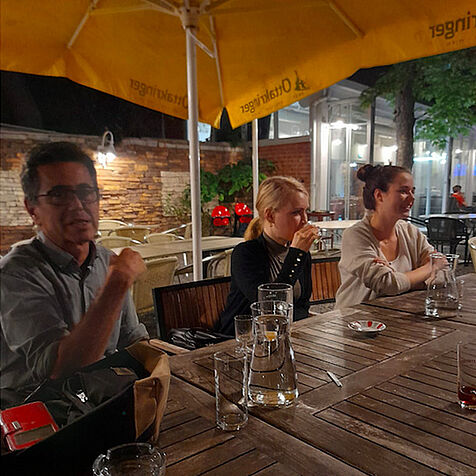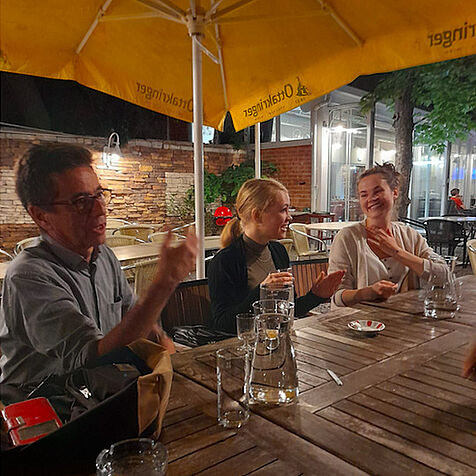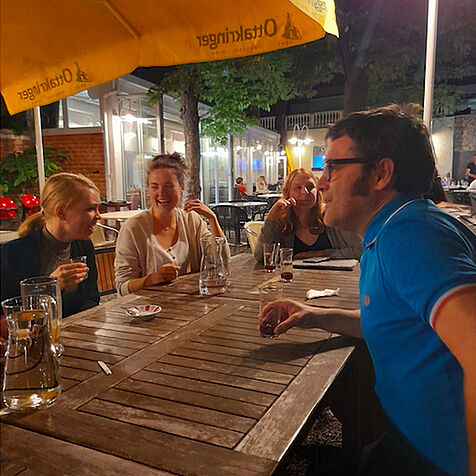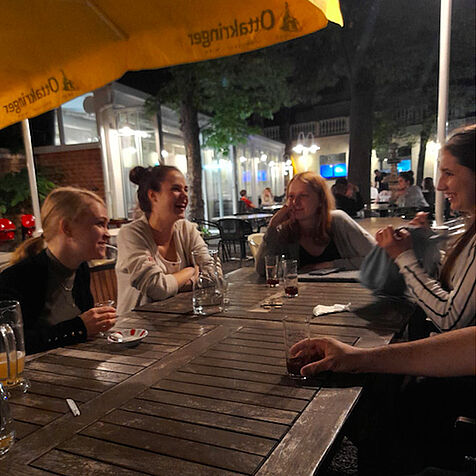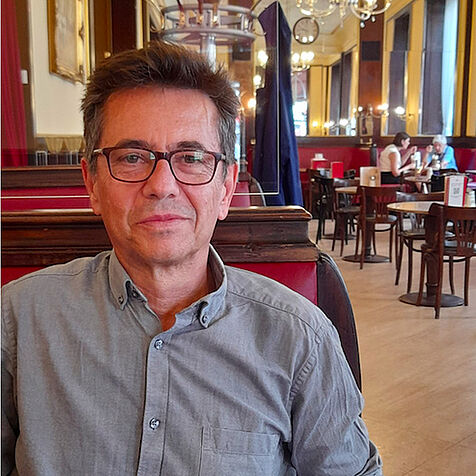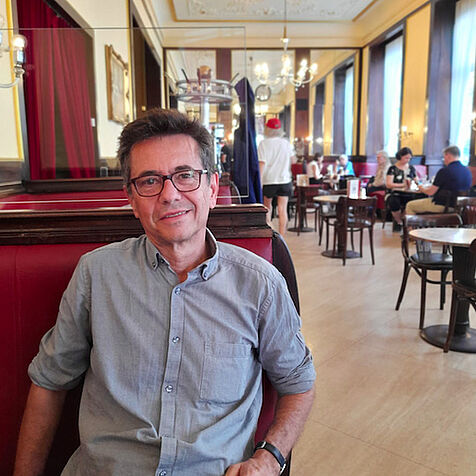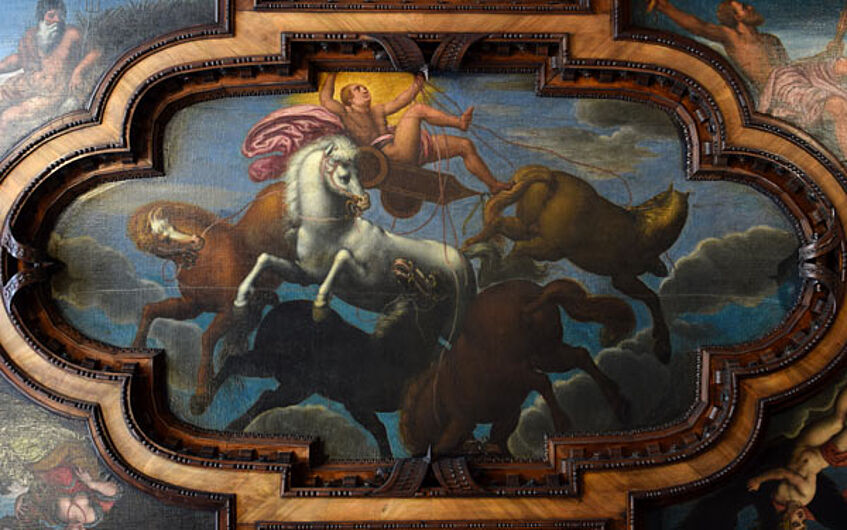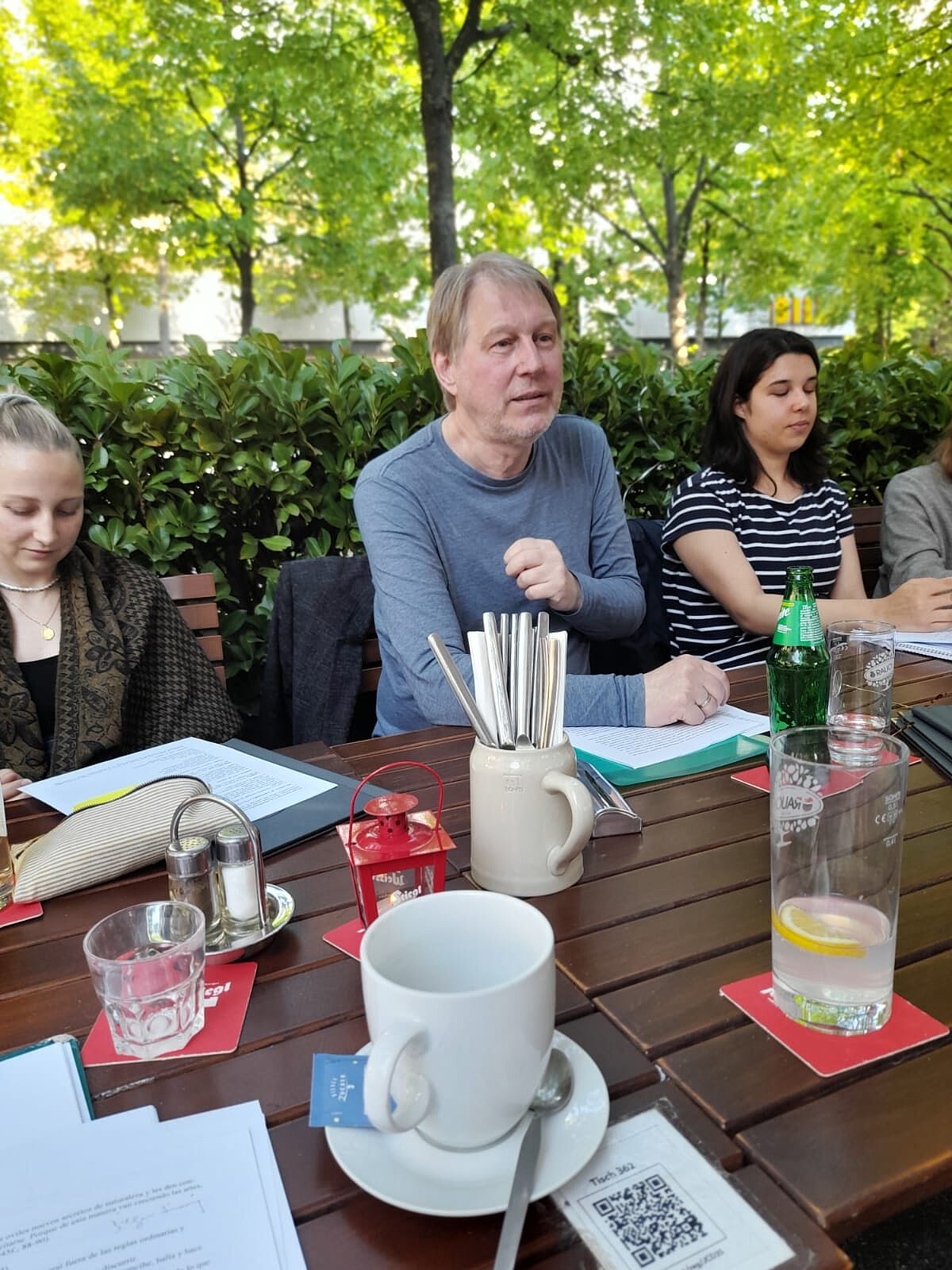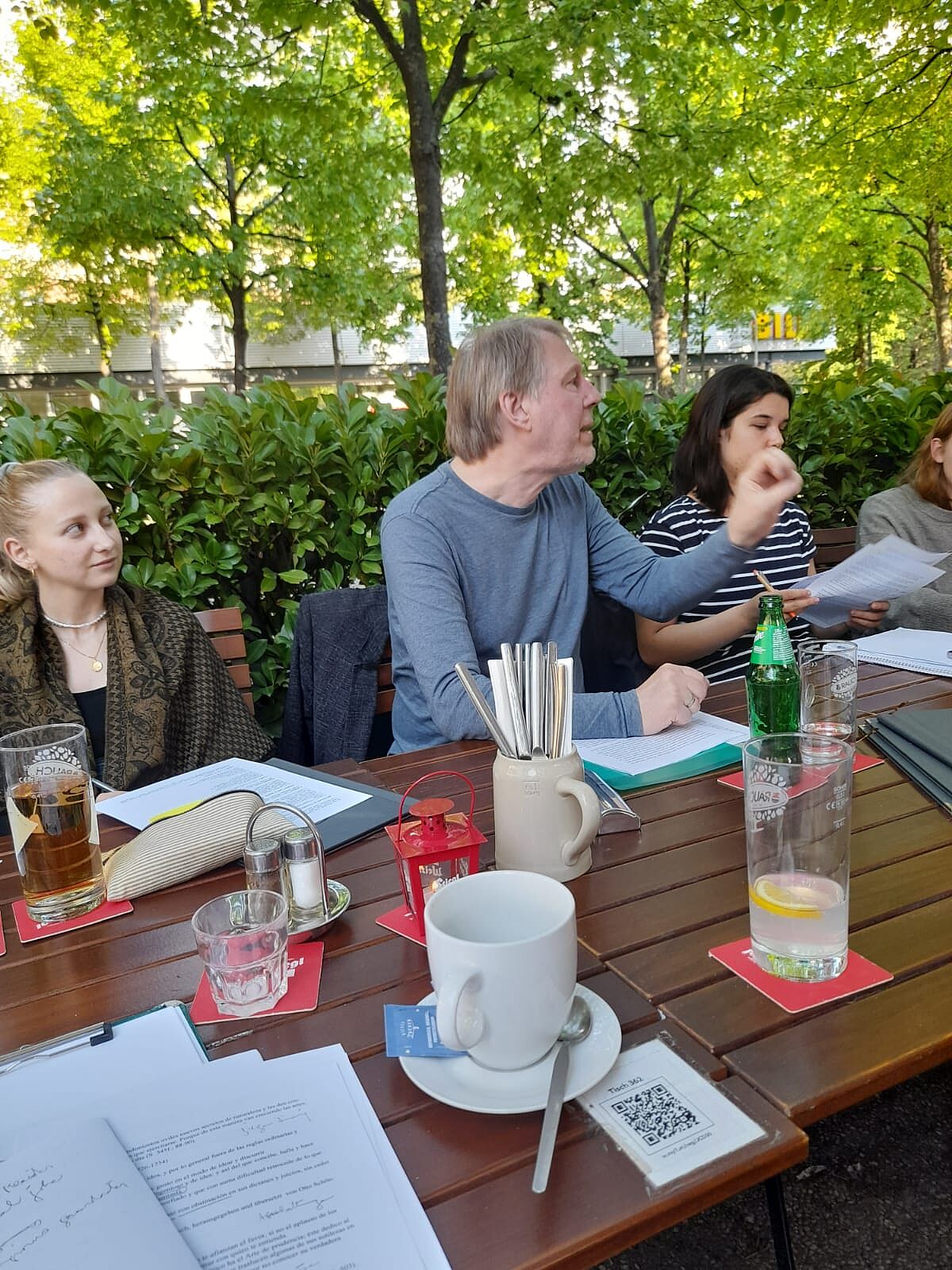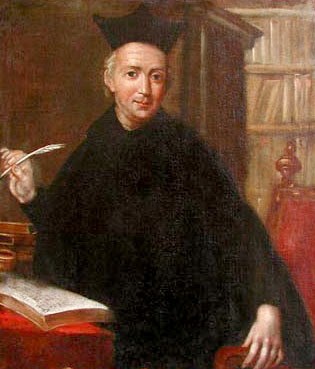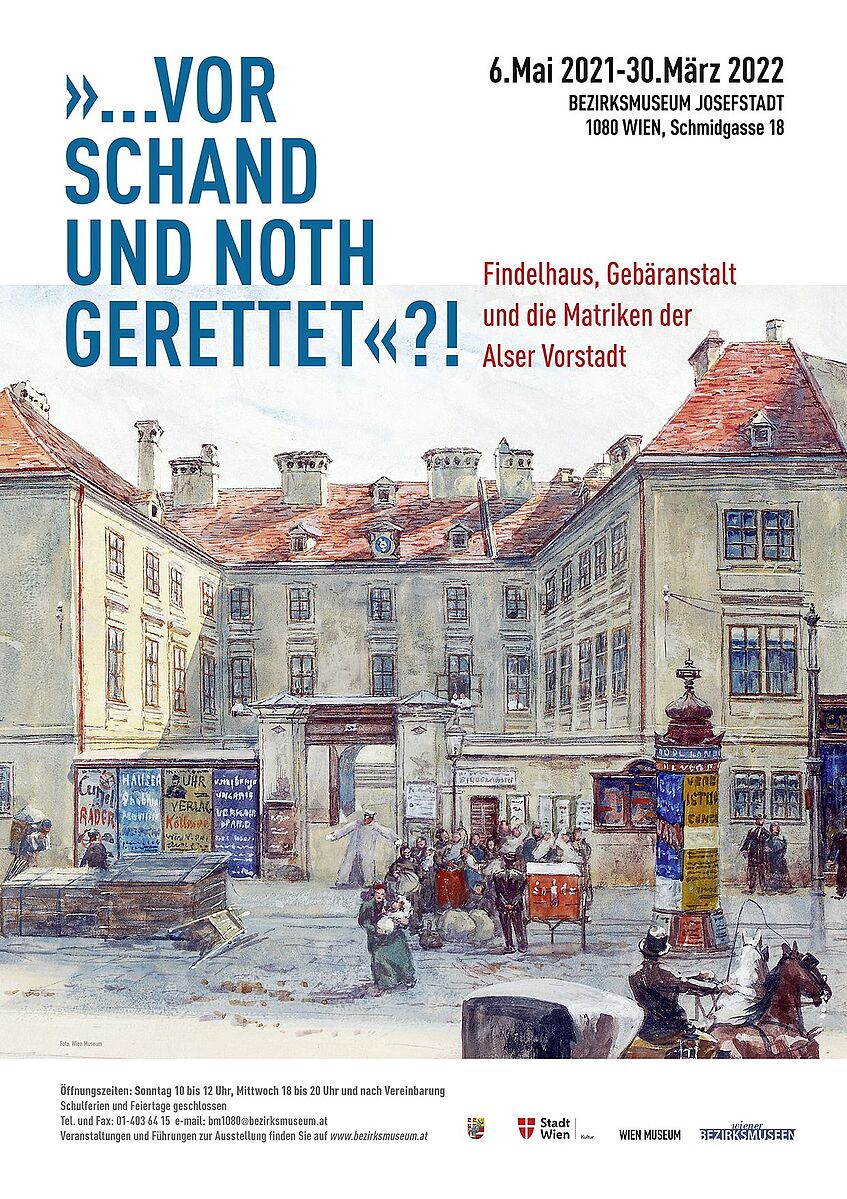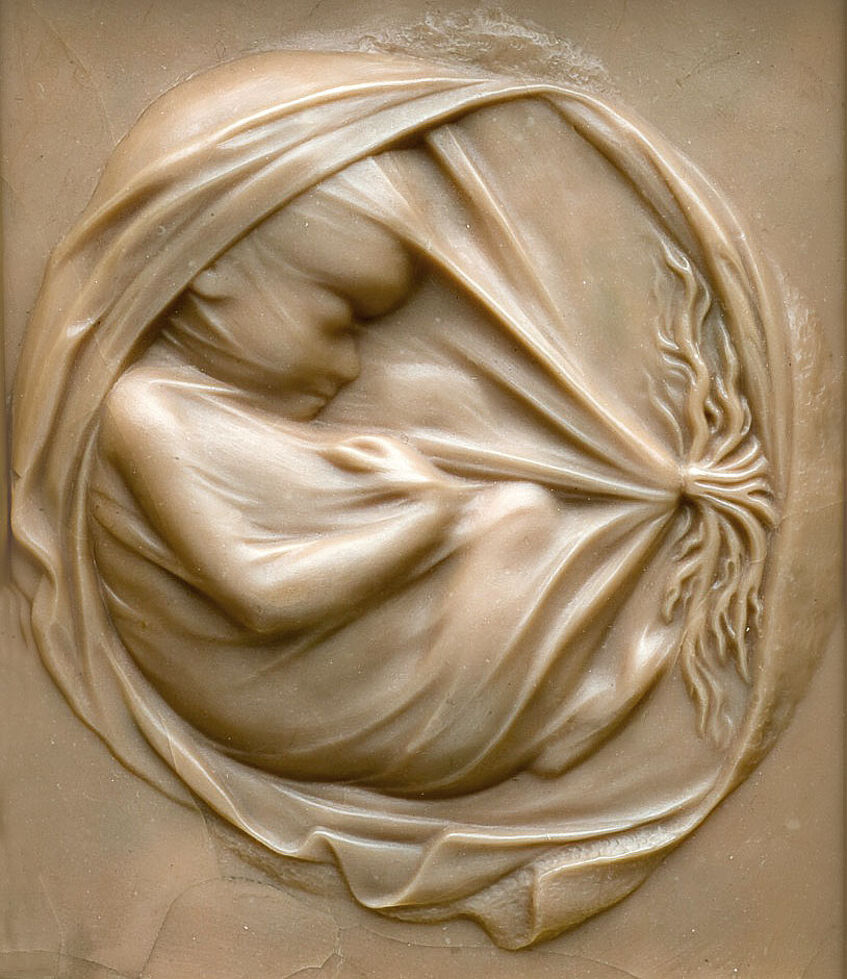Spain and the history of birth in the British Museum
Giuseppe Pio Cascavilla, British Museum London
Friday, 2 December
10:00 am
Café Eiles, Josefstädter Straße 2, 1090 Wien
Contact for inscription as soon as possible: Wolfram Aichinger wolfram.aichinger@univie.ac.at
Taller: En manos de parteras
Miércoles, 30 de Noviembre 2022
15:30 - 18:00
Online
Una colaboración con los miembros del proyecto Desde los márgenes. Cultura, experiencia y subjetividad en la Modernidad (PGC2018-097445-A-C22)
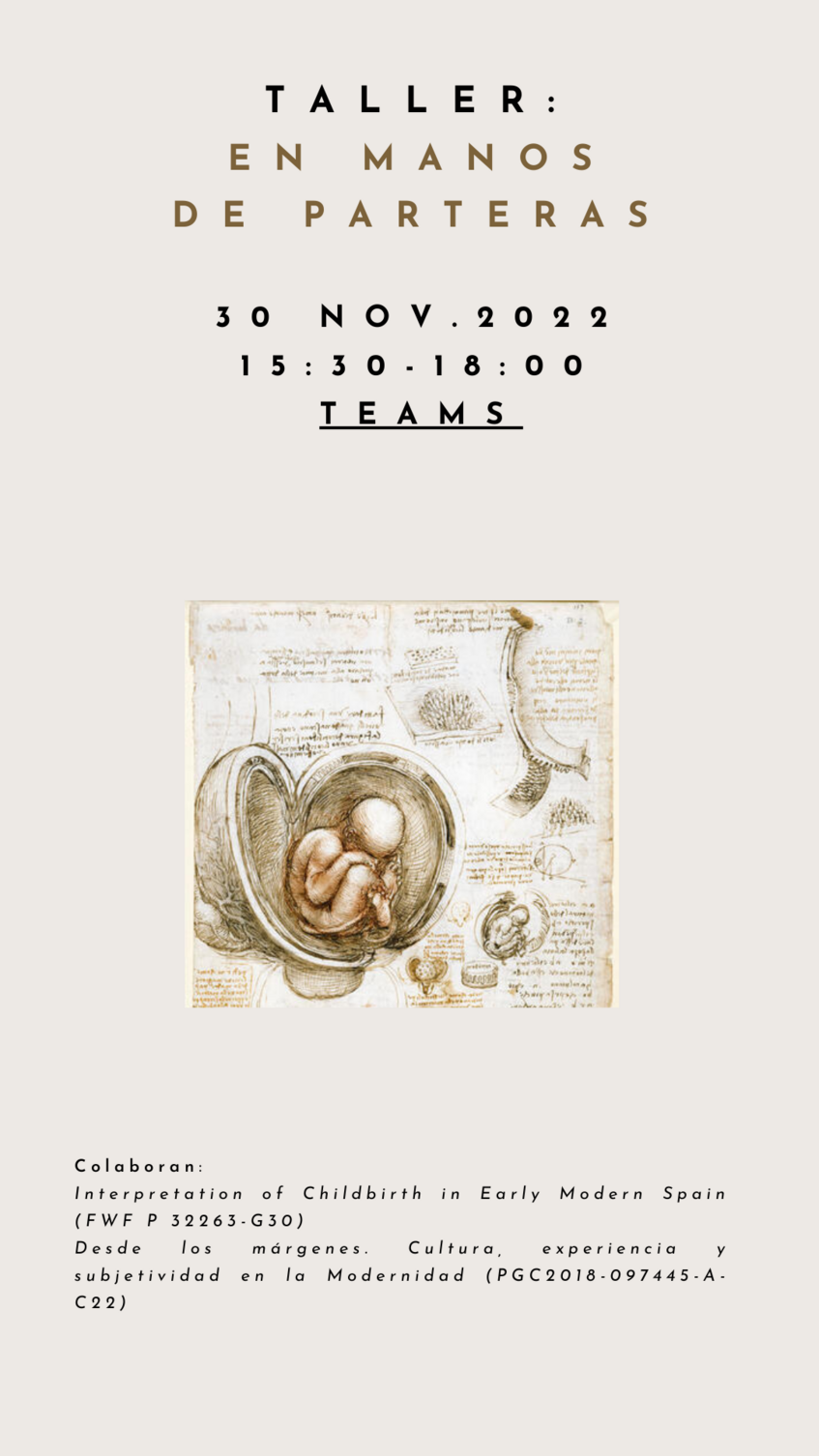
Rhetoric empowerment: die Tyrannei der Phrase und die Früchte der Klassiker
Dr. Wolfram Aichinger
Mo, 28. November 2022
18:00 – 19:30 Uhr
VHS Meidling, Raum 210 (2. Stock) in der Längenfeldgasse 13-15, 1120 Wien
Sind wir dazu verdammt, langweilig zu schreiben und langatmig vorzutragen? Immer wieder das nachzuäffen, was andere Langeweiler vorgemacht haben?
Oder sollten wir uns einfach mehr trauen? Und bei den Besten lernen – bei Martin Luther, Montaigne, Cervantes, Heinrich Heine, Sigmund Freud, bei Hannah Arendt oder Margaret Atwood –, staunend darüber, wie viel die sich trauen, wenn sie Wörter versammeln und miteinander tanzen lassen.
Ich werde ein paar der besten Schreiber auf die Bühne rufen und fragen, wie sie es machen, wenn sie einfach, klar, lebendig, interessant und: überzeugend schreiben
Gebühr: 7 € ohne Science Card
Gebühr: 0 € mit Science Card
Sondergebühr: 3,50 € für Studierende von Prof. Aichinger mit dem Code Wort: UniAichinger
Aufzeichnungen aus dem Gebärhaus Madrid zwischen 1860 und 1899.
Aufschlüsse über Mütter und Neugeborene
Sabine Köck, Katharina Webinger
Montag, 21. November 2022
9:15 – 10:45
ROM 12
Universität Wien,
Institut für Romanistik, Universitätscampus AAKH, Hof 8
Spitalgasse 2, 1090 Wien
Organisation: Wolfram Aichinger, Sara Brankovic
La merced de extraños
Findelhäuser und Gebärhäuser im Spanien des 19. Jahrhunderts
Workshop
Samstag, 12. November 2022
9:00 – 13:00
Grand Café am Alsergrund, Lustkandlgasse 4, 1090 Wien
Beiträge:
Wolfram Aichinger
• Geburt, Stillen und früheste Kindheit in spanischen 19. Jahrhundert. Allgemeine Erkenntnisse aus außergewöhnlichen Quellen
Lisa Heilig
• Das, was bleibt: Erinnerungen an die Findelkinder des 19. Jahrhunderts und an die, die sie zurückließen
Valentina Hilbrand
• Los expósitos de Granada (1787-1794): las circunstancias del abandono
Sabine Köck
• Frauen und Mütter im Gebärhaus Madrid in den Jahren 1898 und 1899: Alter, Ehestand, Herkunft, Dauer des Aufenthalts
Katharina Webinger
• Kinder im Geburtshaus Madrid zwischen 1860 und 1899: Saisonalität der Geburten und Geburtsstunde
Kommentar und Diskussion:
Wiki Anwari, Sara Brankovic, Cristina Messnik, Lisa Reischitz, Bea Villegas, Elke Wenzelhuemer, Alexandra Wögrath
Organisation:
Wolfram Aichinger, Sara Brankovic, Universität Wien, Institut für Romanistik
''Y sin embargo, circula una sangre nueva y fresca''
Parir en tiempos de guerra
Wolfram Aichinger
Universidad de La Rioja / Cilengua-Fundación San Millán Logroño / San Millán de la Cogolla (y con la colaboración del GRISO, Grupo de Investigación Siglo de Oro, de la Universidad de Navarra)
Miercoles, 19 de octubre 2022
10:30 – 11:00
Sala de Grados. Ed. Quintiliano. Universidad de La Rioja
Logroño, España
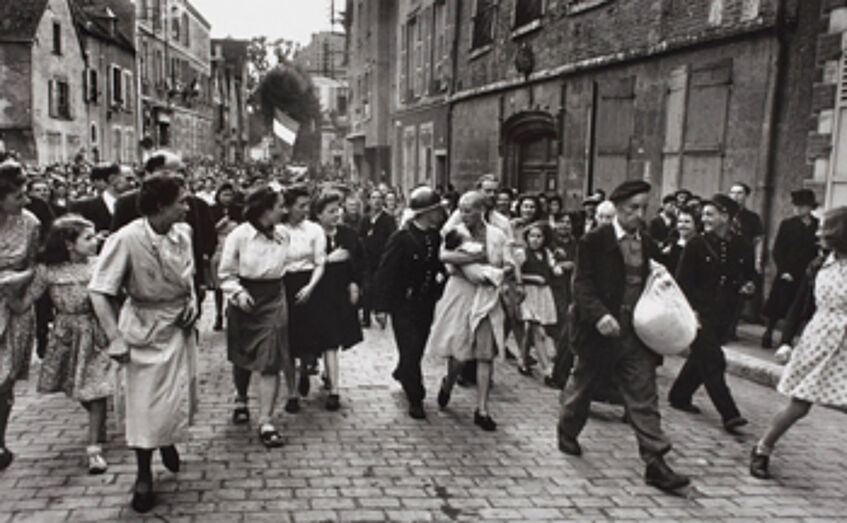
Robert Capa: La tondue de Chartres (The Shaved Woman of Chartres)
Historia de las abuelas en España
María Dolores Ruiz Berdún
autora de Historia de las Matronas en España; Facultad de Medicina y Ciencias de la Salud, Alcalá de Henares
Conferencia y debate
Martes, 11 de octubre 2022
15:15-16:45
ROM12
Universität Wien,
Institut für Romanistik, Universitätscampus AAKH, Hof 8
Spitalgasse 2, 1090 Wien
Violencia obstétrica
Un concepto controvertido. Pasado y actualidad
María Dolores Ruiz Berdún
autora de Historia de las Matronas en España; Facultad de Medicina y Ciencias de la Salud, Alcalá de Henares
Conferencia y debate
Lunes, 10 de octubre 2022
9:15 – 10:45
ROM 12
Universität Wien,
Institut für Romanistik, Universitätscampus AAKH, Hof 8
Spitalgasse 2, 1090 Wien
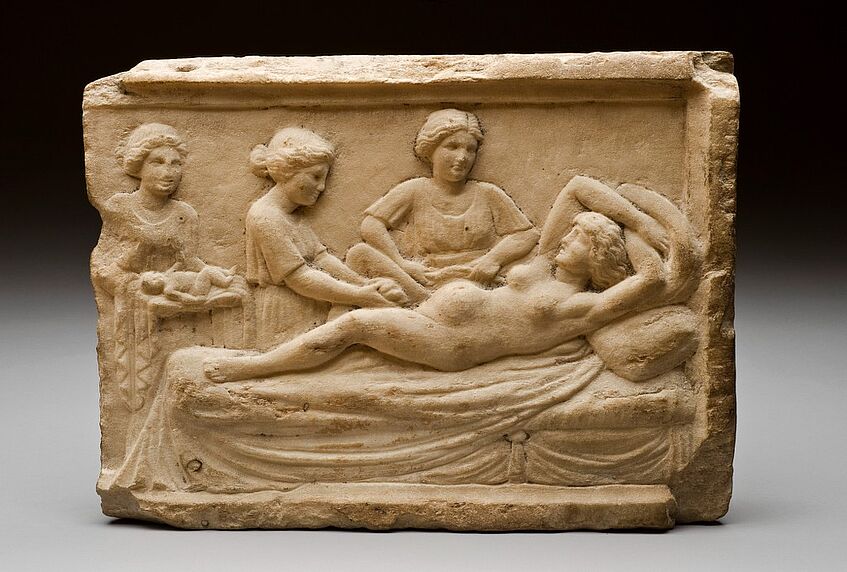
La comadre española. Oralidad y escritura
Oralidad y escritura
Wolfram Aichinger
PANEL 4: Comadronas, alumbramientos y lactancia en la España de la edad moderna. (AULA 108)
Viernes, 7.10.2022
9:00 – 10:30
The Sixteenth Biennial Symposium of GEMELA
Jueves, 6.10.2022 – Viernes, 7.10.2022
Universidad de Valencia, Facultat de Filología, Traducció i Comunicació, España
Die Kunst des Satzbaus
Sätze und Absätze in der Wissenschaft
Workshop mit Wolfram Aichinger
Donnerstag, 15. September 2022
9:00 – 16:00
ROM 12
Universität Wien,
Institut für Romanistik, Universitätscampus AAKH, Hof 8
Spitalgasse 2, 1090 Wien
"Sätze sind die Pulsschläge eines Textes, und ein guter Text pulsiert."
- Staunen über die Sprachkunst der besten Stilisten.
- Diskussion: was macht kraftvolle Sätze aus? Wie entstehen sie aus der klugen Verbindung von Silben, Wörtern und Satzgliedern?
- Wie sehen Absätze aus, die klar, genau, und sogar erfreulich sind?
- Wie entkommen wir der Langeweile akademischen Schreibens?
- Arbeit an Texten, mitgebrachten oder vor Ort verfassten, Deutsch, Spanisch, Englisch
Las criadas y los divorcios: pasión, honor y justicia
Nere Jone Intxaustegi Jauregi, Universidad de Deusto
Viernes, 5 de agosto 2022
Café Kent, Brunnengasse 67, 1160 Wien
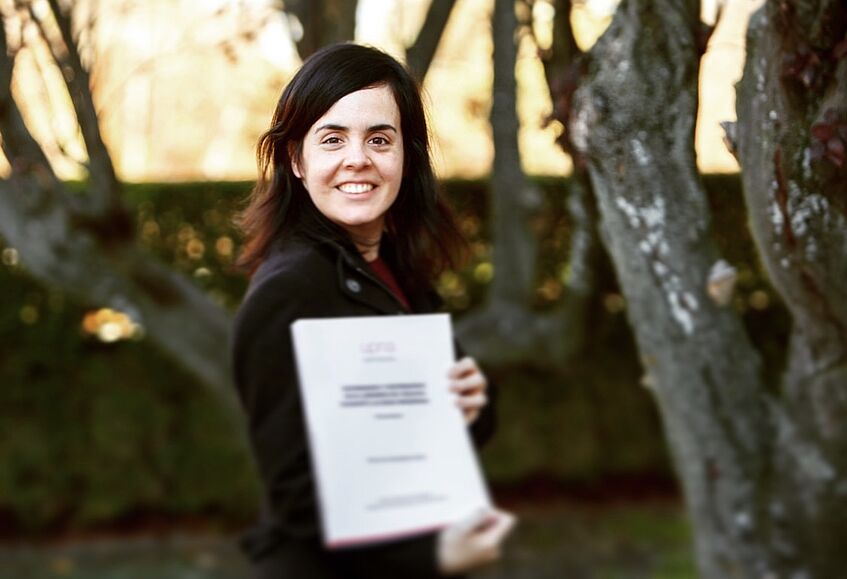
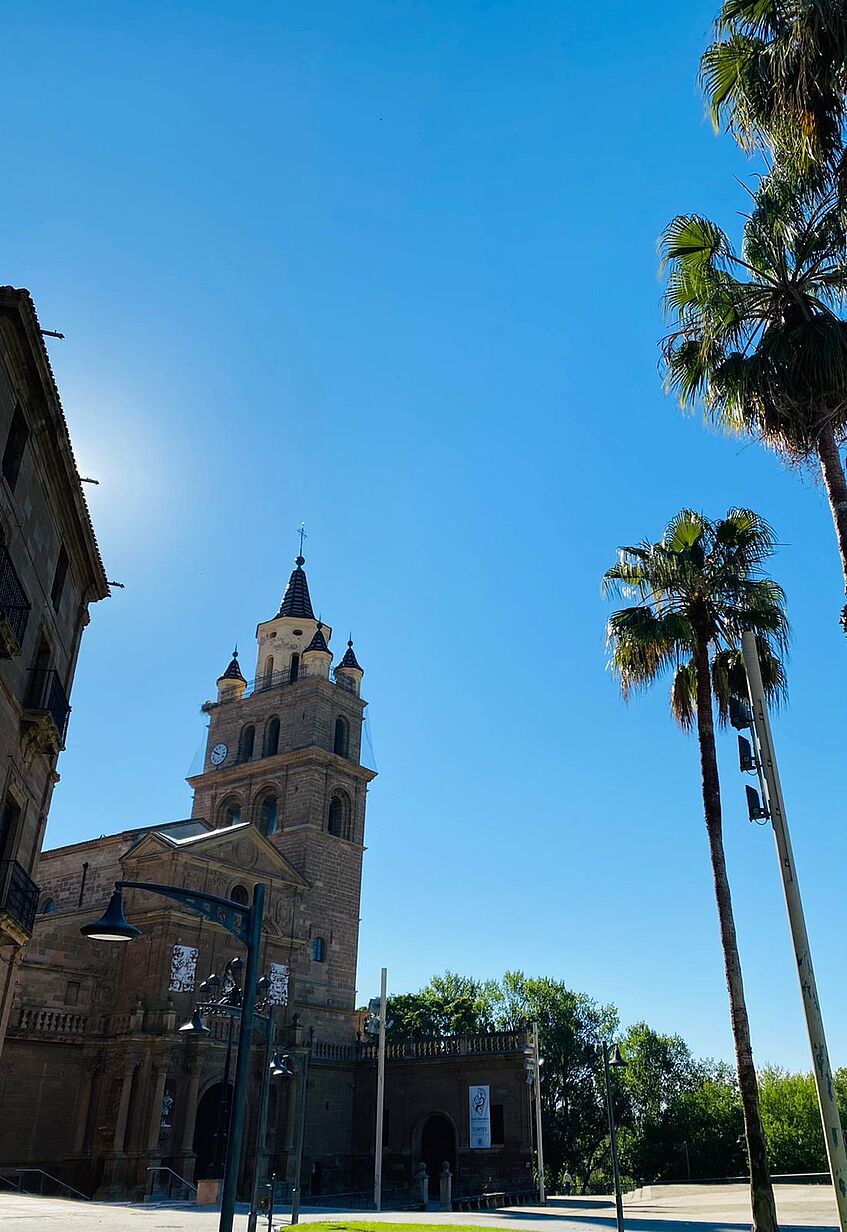
5 geheime Tricks, wie Sie Ihre LeserInnen am schnellsten langweilen
Lorenz Goldnagl: Unternehmer, Online-Marketing-Experte
Dienstag, 14. Juni 2022
11.15 - 12.45 Uhr
ROM 4
Universität Wien,
Institut für Romanistik, Universitätscampus AAKH, Hof 8
Spitalgasse 2, 1090 Wien
Ob Powerpoint, Homepage oder Vortrag: über 90% der Menschen langweilen Ihr Publikum bereits nach wenigen Augenblicken. Ich zeige Ihnen, wie Sie mit einfachen sprachlichen Tricks dafür sorgen, dass Ihnen die ungeteilte Aufmerksamkeit des Publikums sicher ist. Ideal für alle, die Texte schreiben, Vorträge halten, Verkaufsgespräche führen und dabei überzeugen und unterhalten wollen.
Padrinazgos y vínculos de sangre
El flamenco presentado por la guitarra de Bruno Chmel
Bruno Chmel: Gitarrist, Musikpädagoge, Flamenco-Kenner
Mittwoch, 8. Juni 2022
19.00 - 20.30
ROM 1
Universität Wien,
Institut für Romanistik, Universitätscampus AAKH, Hof 8
Spitalgasse 2, 1090 Wien
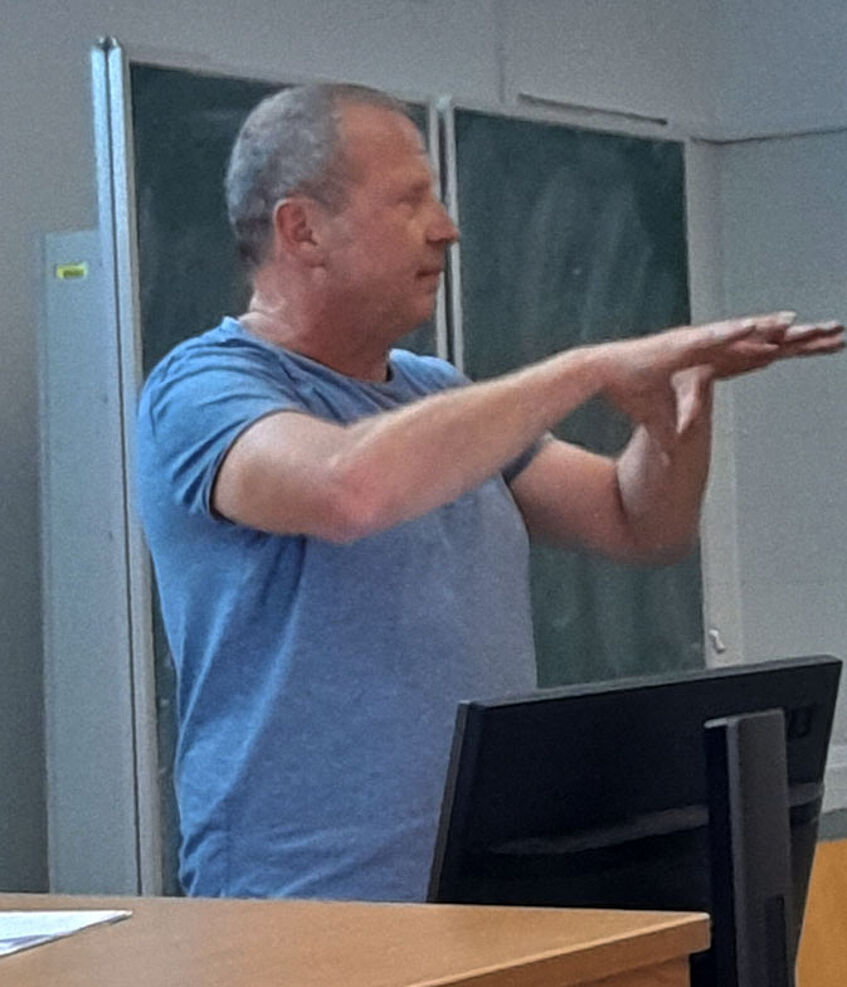
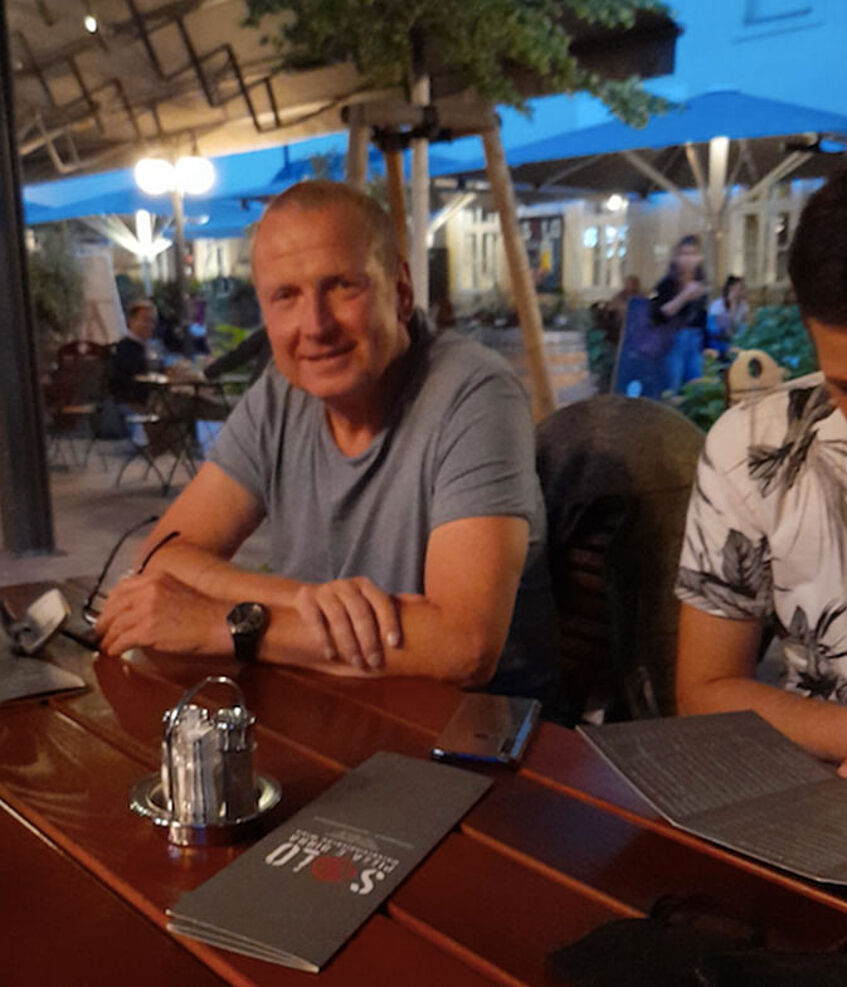
Variaciones culturales en torno al parentesco, la familia y la gestación
Conference and discussion with Laura Sánchez Pérez (Universidad de Valladolid)
Tuesday, 24th May 2022
11:15 - 12:45
ROM 4
Universität Wien,Institut für Romanistik, Universitätscampus AAKH, Hof 8Spitalgasse 2, 1090 Wien
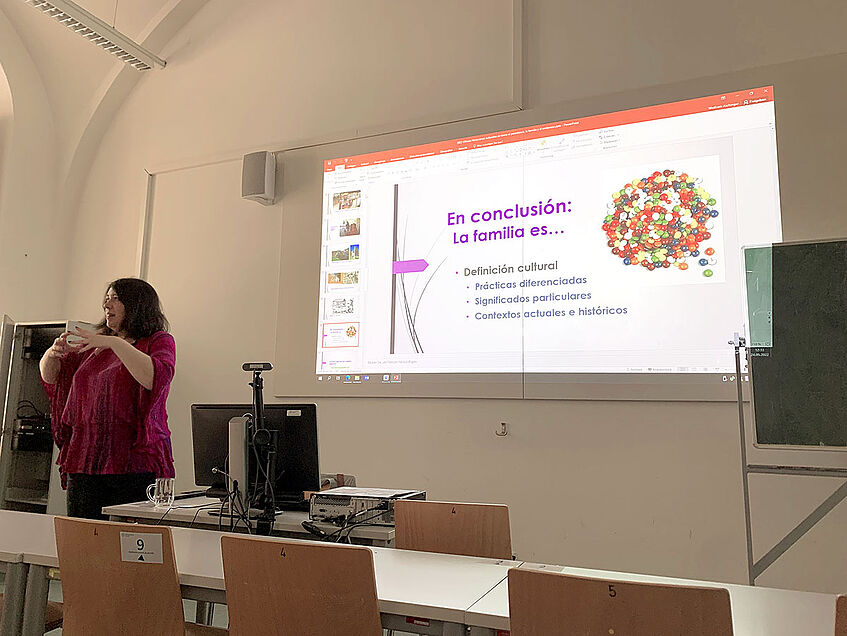
Lactancia y primera infancia
Conference and debate with Pilar Panero García (Departamento de Antropología, Universidad de Valladolid)
Monday, 23th May 2022
11:15 - 12:45
ROM 4
Institut für Romanistik
Universitätscampus AAKH, Hof 8
Spitalgasse 2, 1090 Wien
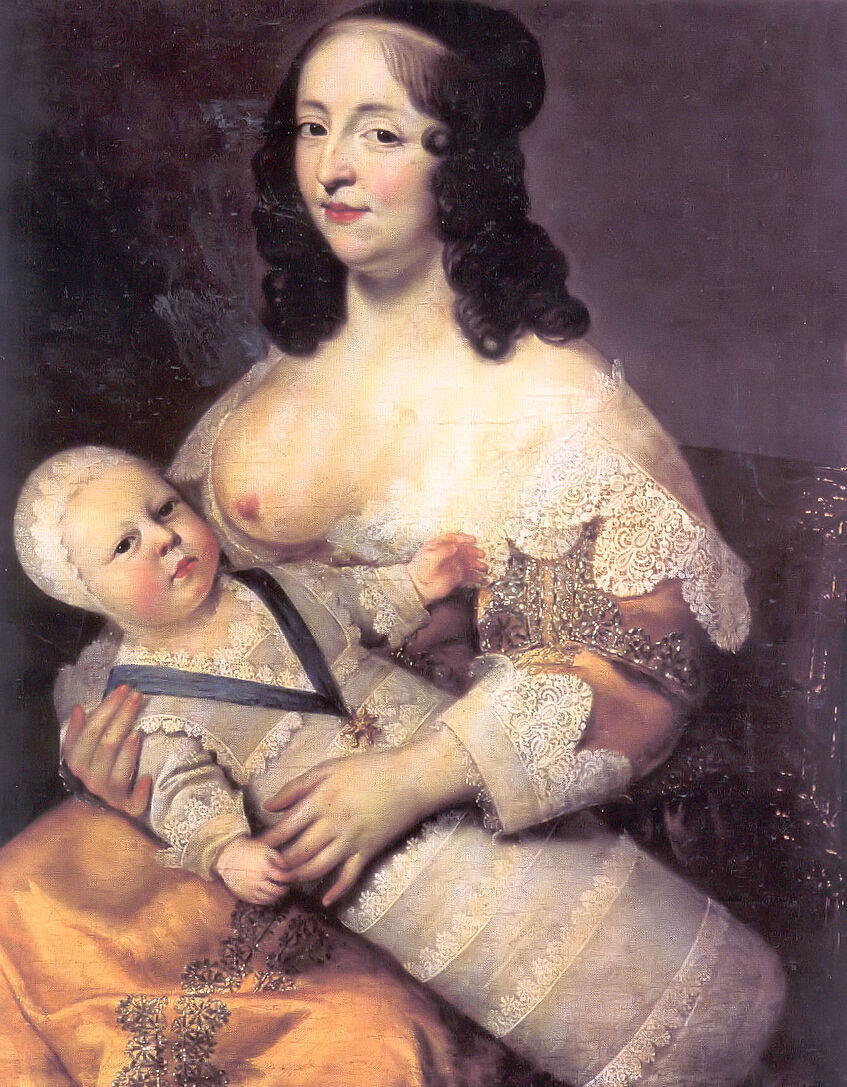
Charles Beaubrun (1640): Louis XIV et la Dame Longuet de La Giraudière
Nacimiento y ciclo vital humano en la cultura española
Conferencia y debate con Carlos Varea (Universidad Autónoma de Madrid)
Lunes, 16 de mayo 2022
17:00 – 22:00
Café Kent, Brunnengasse 67, 1160 Wien
La obra de Dios y la contribución del diablo: el ciclo vital humano
Conference and debate with Carlos Varea (Universidad Autónoma de Madrid)
Tuesday, 17th May 2022
9:15 - 10:45
ROM 5
Institut für Romanistik
Universitätscampus AAKH, Hof 8
Spitalgasse 2, 1090 Wien
Furthermore Carlos Varea will introdue the website of the museo virtual de la ecología humana.
Visit the virtual exhibition «Cultures of Birth in Early Modern Spain and Europe» of our project team here in english and spanish.
Nacimiento y ciclo vital humano en la cultura española. Nuevas perspectivas
Colloquium and debate about current investigation.
Speaking:
› Hannah Fischer-Monzón: Las tres caras de la luna. Calendarios y ciclos femeninos
› Karin Fuchs: ¿A qué hora nacieron los bebés en Mieza (Salamanca) en el siglo XIX?
› Fernando Sanz-Lázaro: Rudimentos de la ruda
› Marie Stockinger: Las listas cuentan historias: pueblos, familias, hermanos muertos
Answering:
› Carlos Varea (Universidad Autónoma de Madrid)
Monday, 16th May 2022
17:00 - 22:00
Café Kent, Brunnengasse 67, 1160 Wien
Registration requested!
Parto y ciclo vital humano
Conference and discussion with Carlos Varea (Universidad Autónoma de Madrid)
Monday, 16th May 2022
11:15 - 12:45
ROM 4
Institut für Romanistik
Universitätscampus AAKH, Hof 8
Spitalgasse 2, 1090 Wien
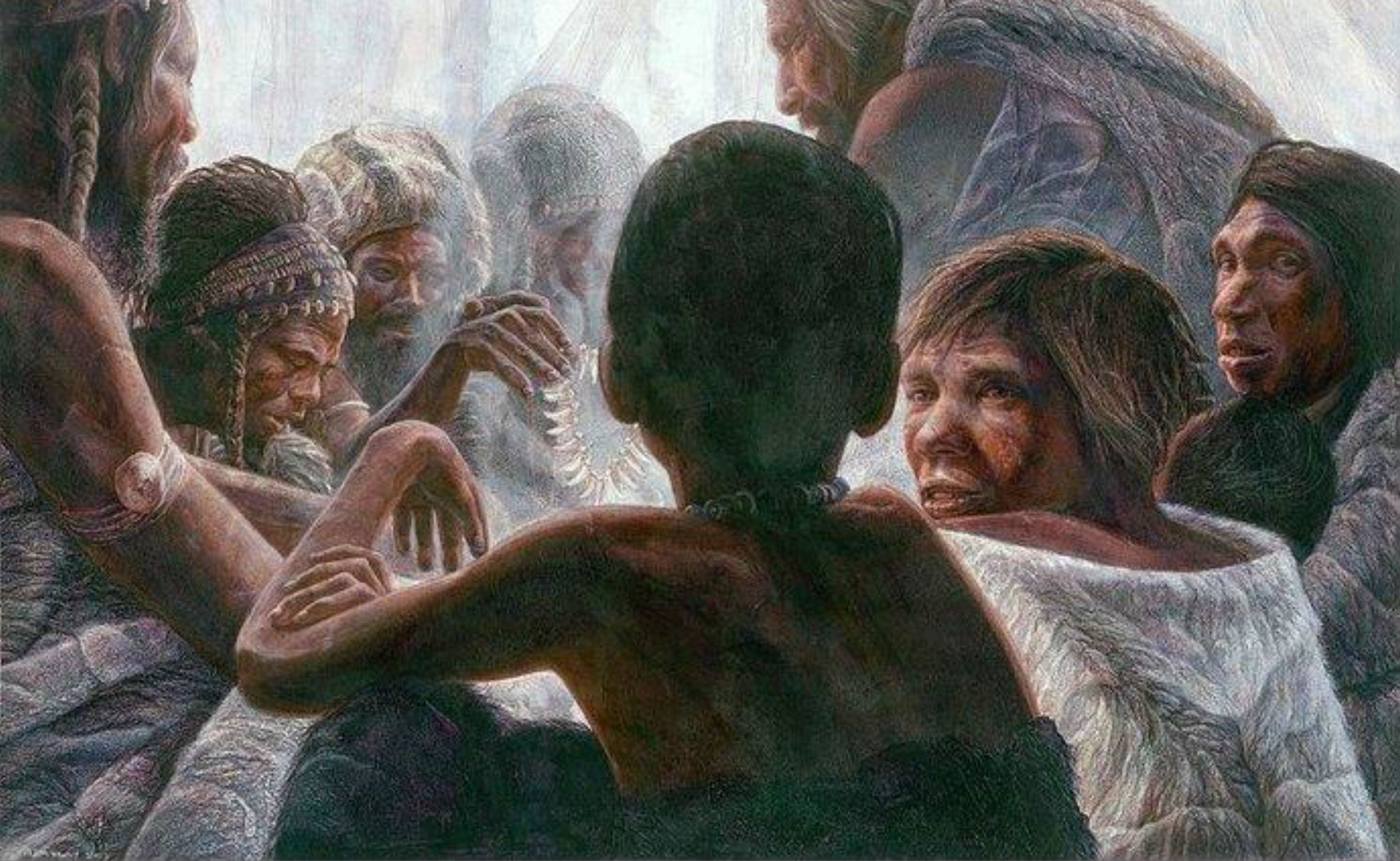
Homo neanderthalensis (Eurasia, 170.000 30.000 a.) El enfoque biocultural considera que la evolución humana debe ser comprendida desde una perspectiva de ciclo vital, es decir, de grupos sociales con miembros de ambos sexos y de distintas edades interrelacionados.
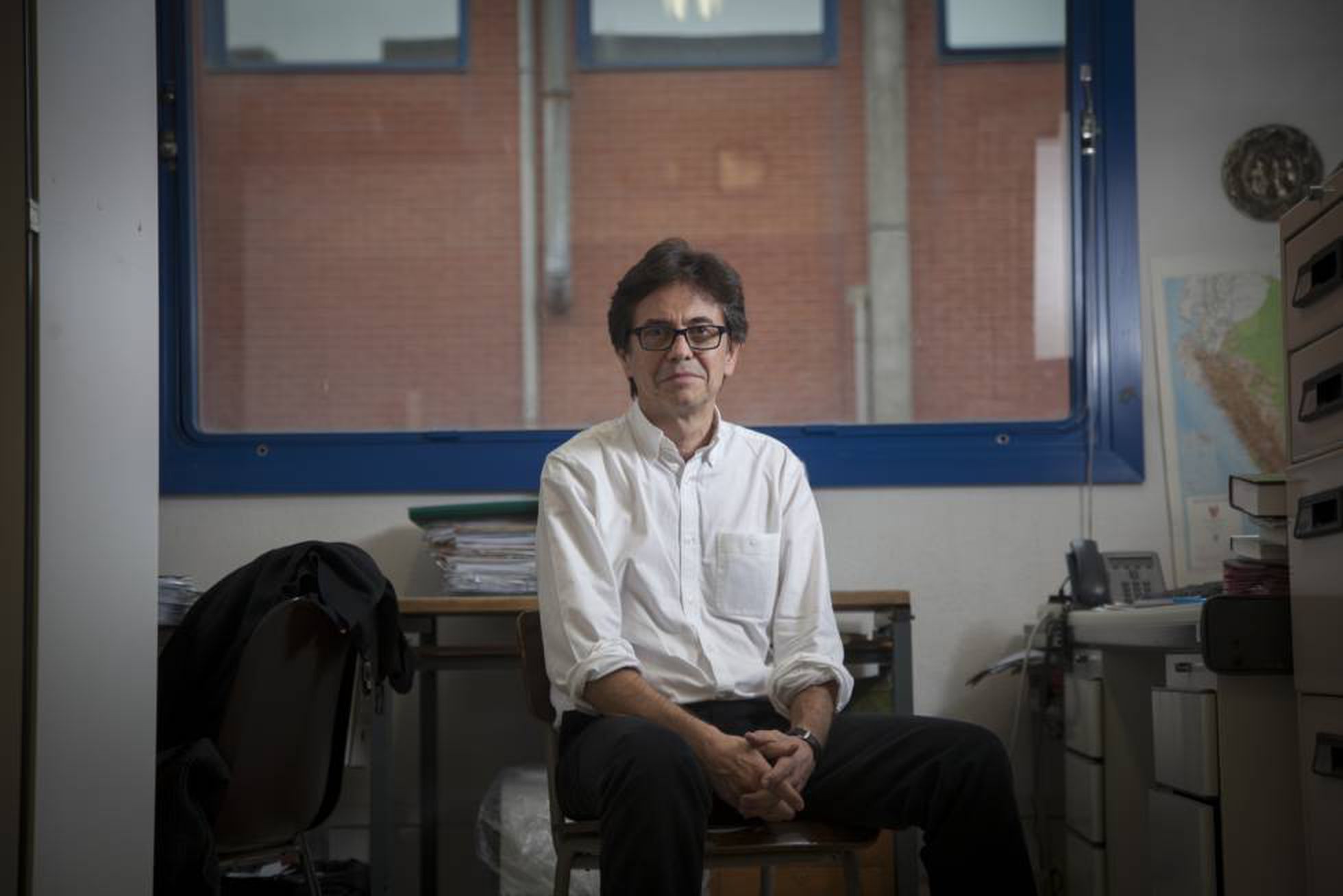
Zum Weltuntergang aus dem Geist des Vater-Sohn-Konflikts
Der Mythos des Phaeton im spanischen Siglo de Oro
plus etiam quam quod superis contingere fas sit
Ja, noch mehr, als selbst einem Gott zu erlangen vergönnt ist
Prof. Dr. Gerhard Poppenberg
Wednesday, 11th May 2022
15:15 - 16:45
ROM 2
Institut für Romanistik
Universitätscampus AAKH, Hof 8
Spitalgasse 2, 1090 Wien
Workshop: elternlos – ortlos – kopflos
«Gracián - concepto - concepción» Baltasar Graciáns Konzeption des concepto
Presentation and discussion with Prof. Dr. Gerhard Poppenberg and the project members of The Interpretation of Childbirth in early Modern Spain
Monday, 9th May 2022
17:00 - 22:00
Restaurant Stiegl Ambulanz
Altes AKH, Alser Str. 4, 1090 Wien
Prof. Dr. Gerhard Poppenberg was Professor of Romance Philology at the Ruprecht Karls University in Heidelberg until 2020. His work is located at the borders between philology and philosophy, literature and theory. They examine questions of French and Spanish literature as well as literary theory.
Publikationen:
› Psyche und Allegorie. Studien zum spanischen auto sacramental von den Anfängen bis zu Calderón (2003; span. Übers. 2009).
› Die Antinomie des Gesetzes. Der Orestmythos in der Antike und der Moderne (2013; engl. Übers. 2018).
› Martin Scorsese. Einführung in seine Filme und Filmästhetik (2018; zusammen mit Dana Poppenberg).
› Herbst der Theorie. Erinnerungen an die alte Gelehrtenrepublik Deutschland (2018).
› Heidelberger Einführung in die Literaturwissenschaft für Romanisten (2019).
› Geist und Geschichte. Grundfragen der Philologie in der deutschen Romanistik der ersten Hälfte des 20. Jahrhunderts (2022; im Druck).
La Celestina. Nuevas perspectivas
Ana Jiménez (doctoral student in Zaragoza)
Wednesday, 27th April 2022
Café Eiles
Josefstädter Str. 2, 1080 Wien
Midwives of Early Modern Spain
Hands that shape identity
Sabrina Grohsebner
UC Berkeley, Department of Spanish and Portuguese
5th April 2022
2pm
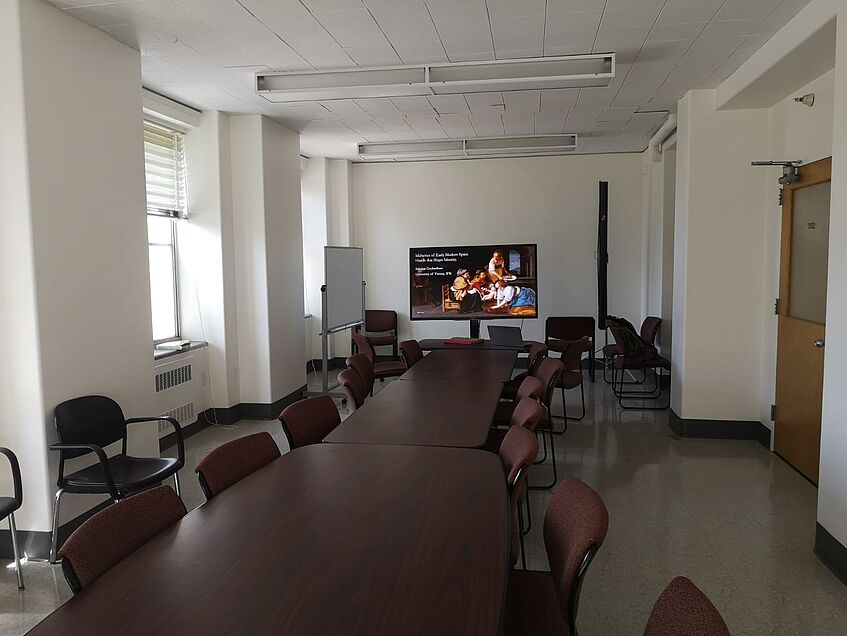
Criar entre mortajas. La mortalidad infantil y los remedios de siglos pasados
Primum Non Noncere
Enfermedades, tratamientos y diagnósticos en la Edad Moderna vistos desde las Humanidades
International conference
Universitat de les Illes Balears
Cra. de Valldemossa
km 7.5. 07122 Palma (Illes Balears)
Palma de Mallorca
23-25th March 2022
Wolfram Aichinger
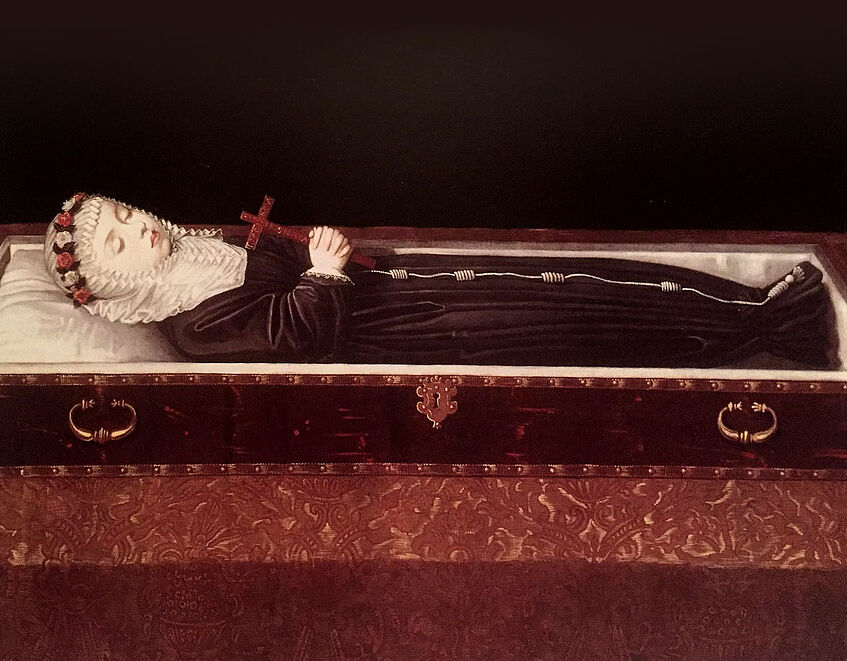
Bartolomé González: La infanta Margarita Francisca, 1617. Monasterio de las Descalzas Reales, Madrid.
Workshop: Prima cura sit, ut bene scribas
Lebendig und akademisch schreiben
Dienstag, 1. März 2022
9:00 - 17:00
Restaurant Kent, Brunnengasse 67, 1160 Wien
Escribanos y escribanías en el Señorío de Vizcaya durante la Edad Moderna
Café Sperl, Gumpendorfenstraße 11, 1060 Wien
Thursday, 3rd February 2022
10.00 am
Spanish historian Nere Intxaustegi introduces her latest book and informs our projects members about the life of nuns and notaries during the 16th–18th centuries in in the Lordship of Vizcaya in Spain.
During these centuries the men were in charge of writing and thus part of a world of power, lawsuits and internal alliances to preserve those positions in the administration of the Modern Age. The scribes were in charge of drafting diverse documentation, such as the minutes of the meetings of the institutions, but also the marriage contracts, dowries or wills of private individuals. Back then the illiteracy rate was very high, so the the scribe played a fundamental role, since he not only wrote, but also used to explain what was written.
More Information about the book «Escribanos y escribanías en el Señorío de Vizcaya durante la Edad Moderna»
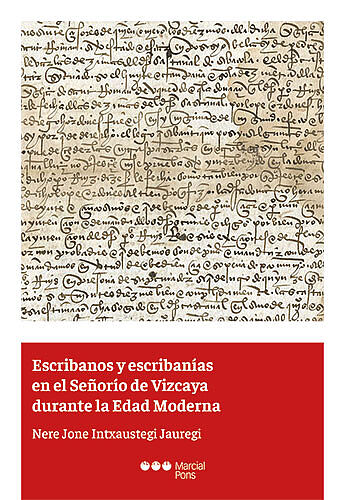
Exkursion: »Vor Schand und Noth gerettet«?!
Findelhaus, Gebäranstalt und die Matriken der Alser Vorstadt
Bezirksmuseum Josefstadt, Schmidgasse 18, 1080 Wien
The project members plan to visit the special exhibition about the former foundling homes in Vienna. Unfortunately the trip to the museum had to be postponed due to the current covid-19 restrictions.
The establishment of foundling homes in many European cities should help prevent child murders and reduce child mortality. At the same time, population policy intentions were pursued - also in Vienna's Alser suburb. In the course of its existence from 1784 to 1910, the foundling house, located from 1788 at Alserstraße 23, took in around 750,000 children and placed them in care places in the country. The majority of these children were born in the building that was located on the site of the former hospital and were then baptized in the parish of Alser Vorstadt.
More information
Video of the opening of the exhibition
Buy book
Reading sample for the book accompanying the exhibition
En caul births in literature
La Celestina, The Devil/Giant with the Three Golden Hairs and David Copperfield
UCC Golden Age Symposium
University College Cork, Ireland
Department of Spanish, Portuguese and Latin American Studies
The aim of the Symposium is to bring together researchers whose work concerns the literature, history, culture, and visual arts of the Spanish Golden Age (1474 1681).
Coordination: Dr. Silvia Arroyo
Tamara H.
Sunday, 28th November 2021
10.30 - 11.00am (local time in Dublin)
Online
Remarkable circumstances of birth lead to special predictions. To be born with a caul was generally considered a sign of luck. Apart from that, many other attributions assigned to those children born with remains of the amnion and the amnion itself have been documented in various European cultures.
Classic western literature has woven these popular beliefs into its stories and thus preserved it to this day. The small selection of fictional stories show the wide range of attributions: The amnion as ingredient for love potions, as prediction for a prosper future and as a highly demanded talisman for sailors.

